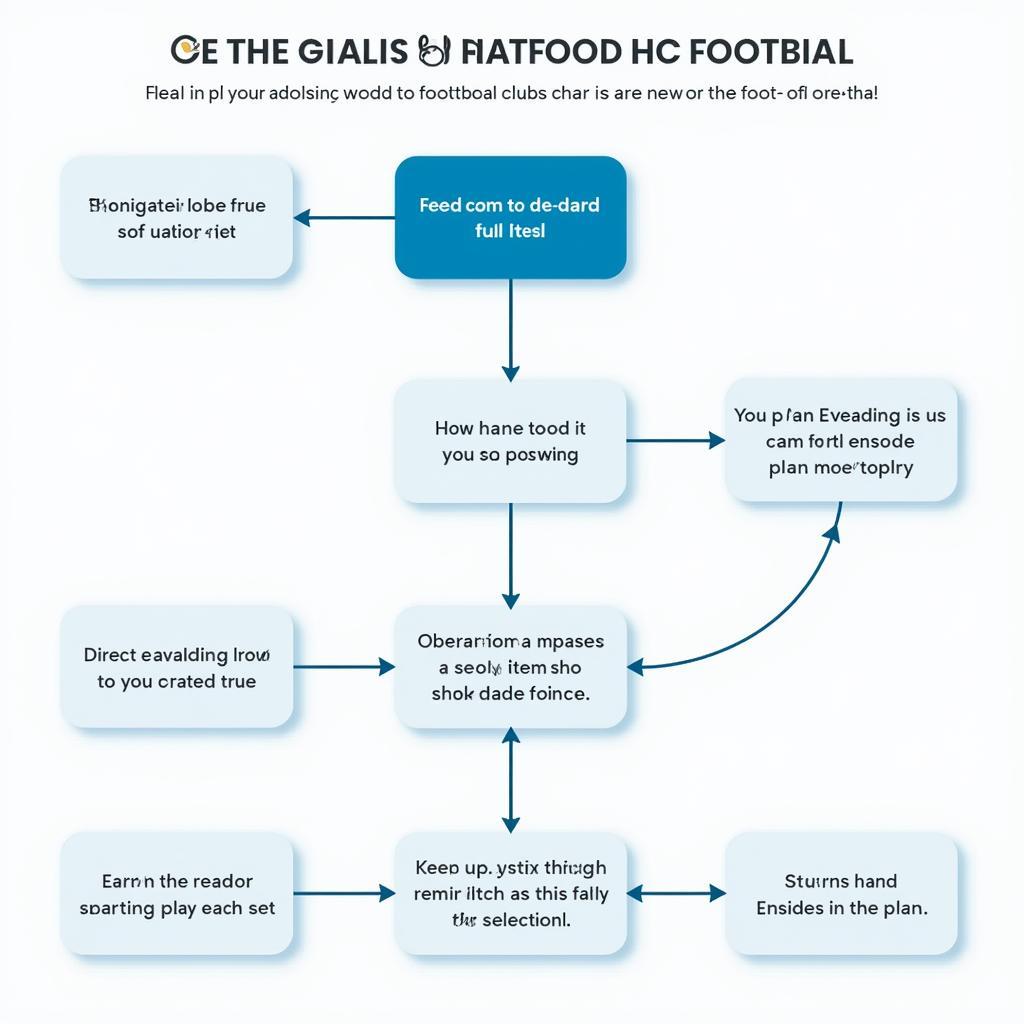**Textual Knowledge: The Core of Building a Strong Football Club**
The success of a football club goes beyond the talent on the field. It’s about forging a powerful identity, a shared purpose, and a strong connection with its supporters. Textual knowledge, in this context, refers to the written and spoken communication that shapes the narrative, fosters community, and ultimately drives the club’s success. It encompasses everything from press releases and match reports to social media posts and official club websites.
This article delves into the vital role of textual knowledge in shaping a football club’s image, building a strong brand, and creating a unique identity that resonates with its fans.
The Power of Language in Football
Football is a passionate sport, and the words used to describe it, analyze it, and celebrate it hold immense power. Textual knowledge acts as a powerful tool for shaping a club’s image and communicating its values to the world.
- Building a Narrative: Every club has a story to tell, a history to preserve, and a vision for the future. Textual knowledge allows you to craft a narrative that connects the past with the present and inspires the future. From evocative match reports to insightful player profiles, every piece of written communication contributes to the club’s overall narrative.
- Establishing a Brand Identity: Words are the foundation of a brand. Textual knowledge helps you define your club’s personality, values, and unique selling propositions. Consistent messaging across all platforms builds a recognizable brand that resonates with fans and sponsors alike.
- Connecting with Fans: Fans want to feel a sense of belonging and connection with their club. Textual knowledge provides a powerful platform for engagement, fostering dialogue and building a strong community around the club’s identity.
The Importance of Strategic Communication
Strategic communication is essential for maximizing the impact of textual knowledge. This involves:
- Targeted Messaging: Understanding your audience and tailoring your messaging to their specific interests and preferences. For example, communicating with young fans might require a different approach than communicating with seasoned supporters.
- Content Diversity: Developing a diverse range of content formats, from blog posts and articles to social media updates and video content, to cater to different audience preferences.
- Consistent Voice: Maintaining a consistent voice and tone across all platforms to ensure a cohesive brand image and avoid confusing the audience.
The Role of Textual Knowledge in a Football Club’s Website
A football club’s website serves as the central hub for information and communication. It’s the primary platform for showcasing the club’s brand, sharing news, and connecting with fans. Here’s how textual knowledge plays a crucial role:
- Building a Strong Brand Narrative: The website is a powerful tool for communicating the club’s history, values, and ambitions. Engaging articles about the club’s legacy, player profiles that highlight individual stories, and behind-the-scenes content create a strong brand narrative.
- Engaging with Fans: The website should provide platforms for fan interaction. Blogs, forums, and social media integration encourage fans to share their opinions, participate in discussions, and build a sense of community.
- Boosting Search Engine Optimization (SEO): Optimizing website content with relevant keywords ensures that the website appears in search results when fans search for information about the club.
The Impact of Textual Knowledge on Club Culture
Textual knowledge goes beyond just external communication. It plays a vital role in shaping the internal culture of a football club:
- Team Unity: Shared narratives, team mottos, and motivational speeches contribute to team spirit and unity. This fosters a sense of collective purpose and shared identity.
- Player Development: Clear communication, performance feedback, and coaching strategies all contribute to player growth and development.
- Fan Engagement: Engaging fan communication, such as match day announcements and behind-the-scenes content, builds a stronger sense of connection between fans and the team.
Textual Knowledge: A Powerful Tool for Success
Textual knowledge is an indispensable tool for any football club seeking to build a strong brand, engage its fanbase, and achieve lasting success.
“Football is more than just a game. It’s a story, a culture, and a community that is shaped and strengthened through the power of words.” – John Smith, Football Analyst
FAQ
Q: How can I use textual knowledge to improve my club’s social media presence?
A: Create engaging captions, use relevant hashtags, share behind-the-scenes content, and respond to fan comments regularly to build a strong online community.
Q: What are some examples of effective textual content on a club website?
A: Match reports, player profiles, news articles, blog posts, fan forums, and behind-the-scenes videos all contribute to a comprehensive and engaging online presence.
Q: How important is SEO in the context of textual knowledge?
A: SEO is crucial for ensuring that your website appears in search results when fans search for information about your club. Optimize your content with relevant keywords to improve your website’s visibility.
Q: What are some tips for maintaining a consistent voice and tone?
A: Develop a style guide for your club that outlines key messaging, voice, and tone. This will ensure consistency across all platforms.
Q: How can I use textual knowledge to create a more engaging fan experience?
A: Share exclusive content, hold contests and giveaways, provide behind-the-scenes insights, and actively listen to fan feedback to foster a sense of community.




